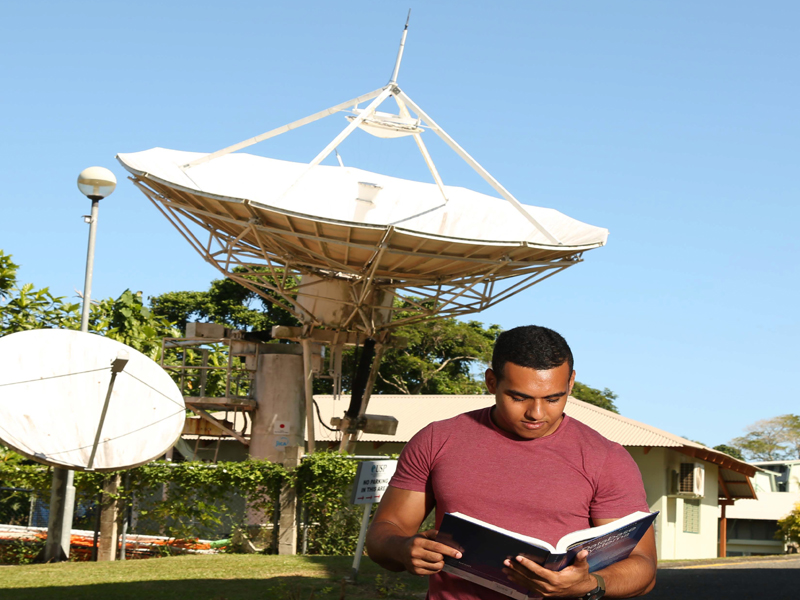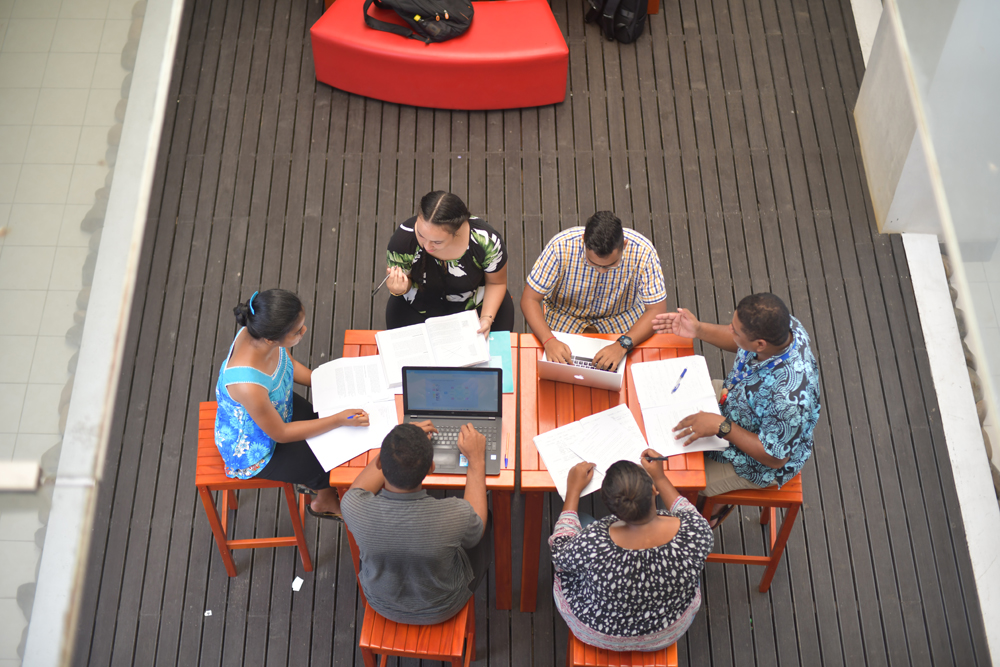
Established to provide higher education to the region, the University has consistently responded to its Member Countries’ needs and has been instrumental in providing the education, training and policy advice needed to successfully address new and emerging opportunities and challenges, adapting its offerings as technology, the needs of its Members, and the expectations of prospective students and employers have changed.
Education is fundamental to the development of any country or region and USP has, for the past 50 years, continuously evolved to ensure that the Pacific region is not left behind in the global competition to nurture the best minds and graduate people who are well-prepared for the modern workforce and lifelong success.
USP’s many international partners validate its claims to offer a learning experience that is on par with that available at universities overseas; employers in the region seek out USP’s graduates and praise their skills, knowledge, and preparedness for work; and Member Countries continue to express their satisfaction with the academic and leadership abilities of USP alumni.
All of USP’s academic programmes have been designed for the Pacific Islands context; the core academic work in introductory courses is similar to that offered elsewhere, but local and regional data, source materials, experiments, and case studies engage students and help them acquire knowledge more readily.
More advanced courses are more obviously contextualised to the Pacific Islands. USP appreciates the importance, and responsibility, of being the only university in the world that teaches with a Pacific Islands context “across the board”, and seizes opportunities to promote the work of Pacific Islands scholars, many of whom teach and practice at the University.
The University has provided Pacific Islanders with high quality educational opportunities, and their governments’ with excellent policy recommendations, technical advice and research, for five decades.

Widely acknowledged to be one of the best examples for regional cooperation, the University has grown from strength to strength.
Just as USP has become the premier provider of higher education in the region, it has taken on a crucial role as a member of the Council of the Regional Organisations of the Pacific (CROP), proactively engaging and taking a lead role in its respective areas to find solutions to development issues that are encountered at the regional and national levels.
USP has also made great strides over the past five decades in the way it offers programmes and courses to its students, restructuring study modes to increase accessibility and improve communication between staff and students.
In 2016, the Commonwealth of Learning (COL), during the 8th Pan-Commonwealth Forum in Kuala Lumpur, Malaysia acknowledged USP for being one of two great regional dual-mode universities in the Commonwealth.
Most of the research carried out at USP is focused on the priorities of its Member Countries and is organised into one or more of the University’s seven Strategic Research Themes. The Strategic Research Themes were devised to improve the amount and quality of research that is carried out at USP and to ensure that the research is relevant to the needs of USP’s Member Countries. Interdisciplinary research is highly valued at the University, which requires that staff focus on key areas of opportunity and challenge for the Pacific and its people. Postgraduate research is also promoted, with Masters and PhD scholarships given to promising students. Most research is also carried out in conjunction with the communities in order to incorporate cultural knowledge.
USP has, with the help of its development partners, invested heavily in enhancing and expanding its campuses, its membership, and its operations. USP’s research is as good as that carried out overseas, and more valuable to the Pacific Islands as it focuses on the Pacific and is designed to help the Pacific Islands, incorporating the most modern research tools and traditional knowledge and experience. One of the best aspects of USP is that all its research and Pacific-centred learning is taking place in the Pacific Islands. There is no need for students to spend vast amounts and leave their families and communities to study overseas, as USP provides the same quality, contextualised for the Pacific and therefore more useful in the job market, for a remarkably affordable investment.
USP helps hold the Pacific people and nations together, is a true example of an institution for the Pacific, by the Pacific, and demonstrates that the Pacific can excel in whatever it chooses to excel.